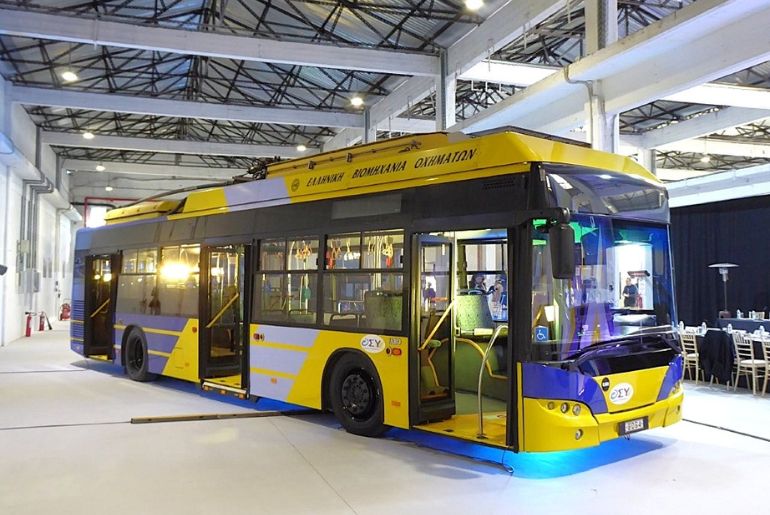Athens Replaces Trolleybuses with Battery-Powered Electric Buses in Major Transport Overhaul
After more than seven decades of service, Athens’ iconic trolleybus fleet is being gradually retired and replaced by modern battery-powered electric buses. The initiative, led by Greece’s public transport operator OASA, is part of a broader push to upgrade the capital’s ageing transport infrastructure and move toward cleaner, more efficient mobility solutions.
A total of 130 trolleybuses currently operating in the city will be phased out by 2027. In their place, OASA will deploy at least 100 new electric buses capable of operating without the limitations of overhead power lines. The plan follows the successful introduction of 250 electric buses in Athens and Thessaloniki, 140 of which are already in service in the capital.
The decision to retire the trolleybus network stems from several challenges associated with maintaining the old system. Officials from the Ministry of Infrastructure and Transport highlighted frequent breakdowns, limited route flexibility due to fixed power lines, and inefficient energy consumption as major factors driving the change. Deputy Transport Minister Konstantinos Kyranakis emphasised that trolleybuses continue to draw power even when not in motion, increasing operational costs unnecessarily.
In contrast, the new electric buses offer better reliability, lower maintenance costs, and significantly greater flexibility. Without the need for fixed infrastructure like overhead wiring, the battery-powered vehicles can be easily rerouted and expanded to underserved areas. Authorities also noted that the lifecycle cost of operating battery-electric buses is considerably lower, with one report suggesting that the cost of three battery buses equals that of maintaining just two trolleybuses.
The replacement project is also expected to improve urban aesthetics and traffic flow, as the removal of overhead lines will eliminate some of the visual clutter and reduce delays caused by system malfunctions.
Athens’ trolleybus network, which dates back to the early 1950s, has long been a symbol of the city’s public transport legacy. Its retirement marks the end of an era but also signals the beginning of a cleaner, more adaptable future for mass transit in Greece. As the city continues investing in sustainable mobility solutions, the transition from trolley to battery marks a significant milestone in Athens’ green transportation journey.

